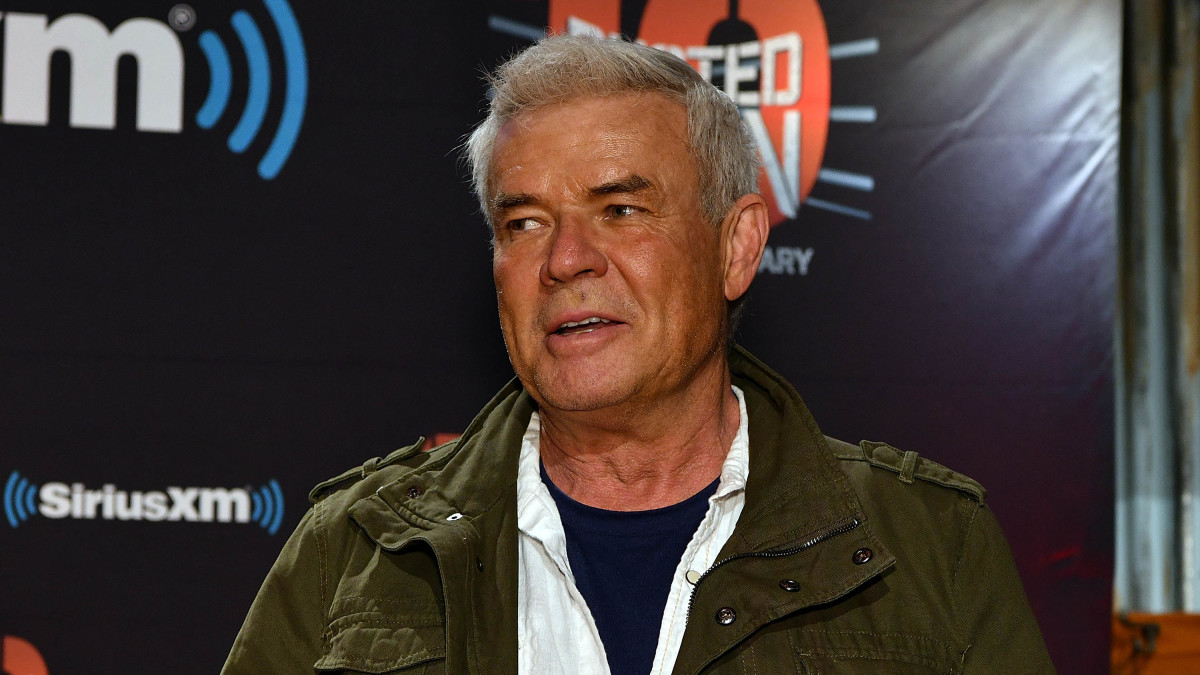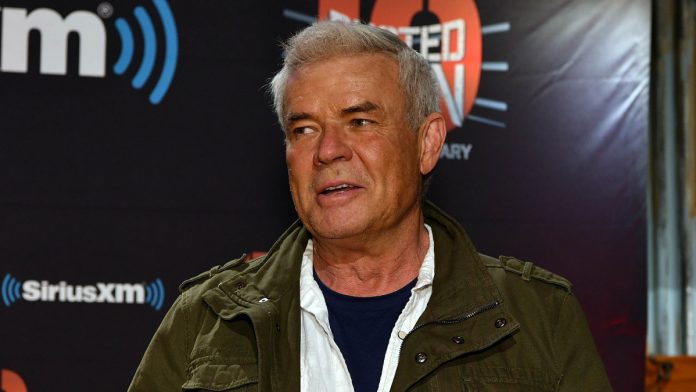Eric Bischoff on the latest edition of his 83 Weeks Podcast spoke about the ‘wars’ which happen between the promotions and how the current wars are different from the old ones. He reflected on the key differences between the Monday Night Wars between WCW and the WWF and the Wednesday Night Wars between AEW and NXT.
Eric Bischoff says Wednesday Night Wars are not legitimate

Eric Bischoff usually gives his opinions on the current happenings in the wrestling world of wrestling. He went on to speak about the most anticipated Wednesday Night Wars between NXT and AEW, which he claims not be the ‘wrestling war’.
He claimed that the era of the Monday Night Wars between WCW and WWE will not come back ever. It is due to the change and the evolution in the world of wrestling and called the Monday Night Wars to be legitimate.
He said: “It was the type of era, the type of magic that I don’t think we’re ever going to see it again. Not because there isn’t anybody out there smart enough to do it, but because I think the world has changed to the extent it has. It was a legitimate war.”
The former Raw General Manager explained that it should be called a war when the shows compete against each other and help the industry to rise above instead of going head to head in terms of only viewership. He noted during the Monday Night Wars WWF (now WWE) would suffer in some aspects. However, competing with Nitro, the company made quite an improvement.
Eric Bischoff went on, “That’s why I have a hard time when people talk about the Wednesday Night Wars, they’re not the Wednesday Night Wars. Two shows head to head does not make a war A good war is when all boats rise with a high tide, when it lifts the entire industry. That’s what we saw here, even though the WWF was suffering in some respects, their business was improving markedly so in other respects because of Nitro.“
According to Bischoff, it does not make sense that being a WWF fan one could not watch WCW and vice versa. Similarly with NXT and AEW. So, being a wrestling fan the competitiveness and the quality of wrestling should be embraced. The improvement and betterment of the product, with the growth in audience is what makes the ‘war’.
‘What makes a war is when you’re competing against each other, forcing each other to improve your product and then you’re watching the audience grow in response. Therein lies a good war,” Bischoff added.


